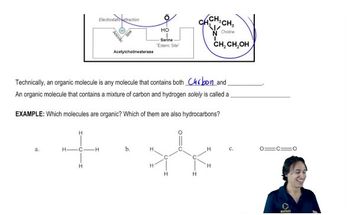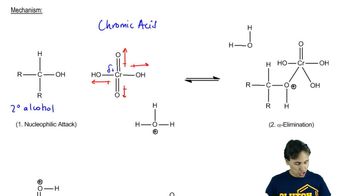Show how you would accomplish the following synthetic
conversions by adding an organolithium reagent to an acid.
(c) pentanoic acid → heptan-3-one
 Verified step by step guidance
Verified step by step guidance Verified video answer for a similar problem:
Verified video answer for a similar problem:



 0:24m
0:24mMaster Intro to Predict the Product with a bite sized video explanation from Johnny
Start learning